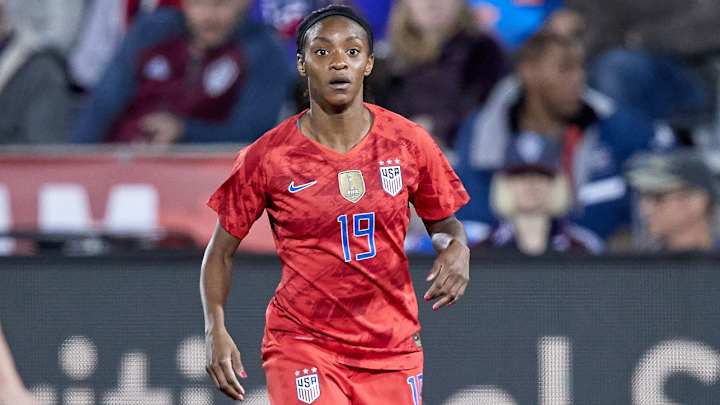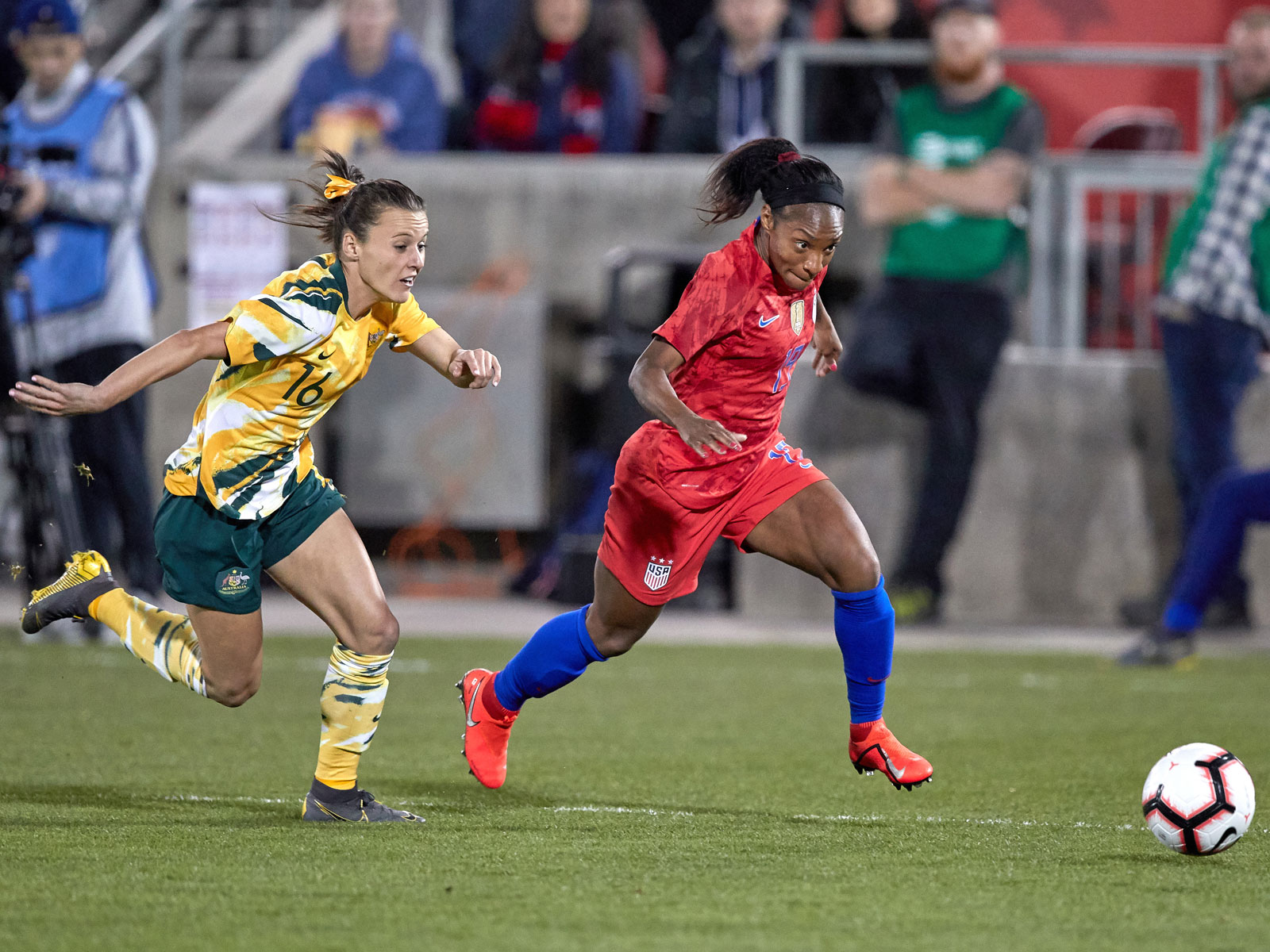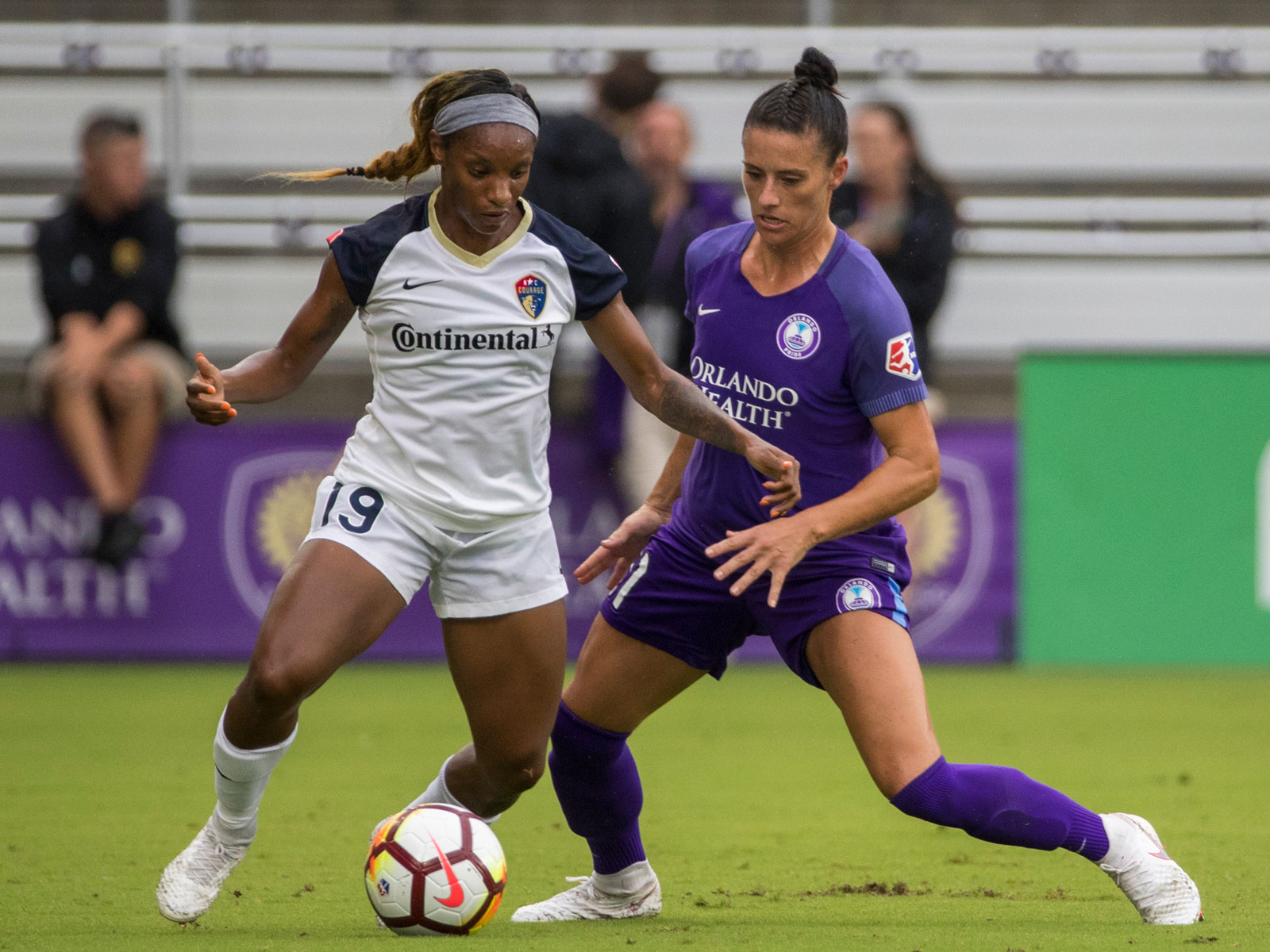Crystal Dunn's Long Road From 2015 Cut to 2019 USWNT World Cup Roster Lock

Crystal Dunn wanted to watch the 2015 Women's World Cup, but not by herself. She couldn’t watch with other soccer players, because they knew how close she’d been to making the team. She was too far away from family—they were in Long Island, N.Y., and she lived in Washington, D.C. She needed to find someone who loved the game as much as she did and also wouldn’t judge her emotions, which were “up, down, all around.”
This was four years ago, after Dunn was the last player cut from Jill Ellis’s Women's World Cup roster. She remembers getting the news and going into full crisis mode, feeling “embarrassment, like I’m useless, like I’m worthless.” She was only 22 and had her whole career ahead of her, but she wasn’t thinking positively.
It’s easier for Dunn to reflect now. She’s a completely different person and player than she was in 2015, having developed more confidence and maturity. Everything she’s done the past four years—winning NWSL MVP in 2015, making her first Olympic team in 2016, playing for Chelsea FC in England’s top professional league in 2017, leading the North Carolina Courage to a title in 2018—has put her firmly in the top tier of international players.
And on Thursday, Dunn's road came full circle as she made her first World Cup roster, listed as a defender for the USWNT, a leading contender to win a second consecutive title.

Dunn's rebound from disappointment began as she played for the Washington Spirit in 2015, and while looking around for a World Cup viewing partner, she was “intrigued” by the club’s the French athletic trainer, Pierre Soubrier. She thought he was cool and kind and eventually asked if he wanted to hang out and watch the tournament at a bar. Soubrier was hesitant at first given their professional relationship. But he doesn’t deny being interested, so he agreed. The two quickly hit it off and watched almost every game together.
They were still getting to know each other, but Soubrier became Dunn’s sounding board. He listened to her vent, gave her advice and tried to get her to see the bright side. He told her to use the adversity as a learning experience and reminded her she was talented. He was also tough and of the mind that “life’s too short, and I don’t have time to waste with negative thoughts and pessimistic attitudes and ideas.” Eventually, Dunn snapped out of her funk.
“He helped me see that this was the beginning of my chapter,” Dunn says. “I think that’s what really sparked my change in character. It was realizing that soccer is a huge part of our lives, in a way it defines us, but we’re human. We’re not just these athletes that care solely about performance or being part of a roster. It’s important to keep things in perspective and he was that light that brought me into reality.
“Life goes on and now we’re hanging out, we’re getting to know each other. Who’s to say that would have happened if I were at the World Cup? Things happen for a reason.”
Dunn channeled lingering disappointment into the ensuing NWSL season. She scored 15 goals in 20 matches and was named league MVP. After the season ended, Dunn and Soubrier officially started dating, and last December, they were married in New York. And for the record, despite his French roots, Soubrier is rooting for his wife and the USWNT to win the World Cup, which will be played in France.
"Look at where we are now," says Soubrier, currently the head athletic trainer for the Portland Thorns. "That’s really also part of the message and the learning experience. How sad and how frustrated and how pissed off she was at that time, but looking back now at how much good has this one thing done on the professional level and on a personal level. It’s just been great. A blessing.”

Dunn was voted the NWSL’s April Player of the Month after scoring four goals in three games for the Courage. She might not be scoring as many goals at the World Cup while playing on the back line, though. With Alex Morgan, Tobin Heath, Megan Rapinoe, Christen Press, Carli Lloyd and Mallory Pugh all pushing for time at forward, Dunn has had to define her role elsewhere. She’s versatile and skilled enough to play anywhere—and she literally has. Dunn started at center back for the U.S. youth national team (coached by Ellis) at the 2010 World Cup, led the University of North Carolina to an NCAA championship as an attacking midfielder, won NWSL MVP as a forward, and will play outside back in her first World Cup.
“Most people on the team have always been a striker or a midfielder, and for me, I’ve always been everything,” Dunn says. “That creates chaos in my mind when one day I’m asked to play forward and am embracing my attacking mentality, and then all of the sudden they’re like, ‘We need an outside back, can you play?’ It’s difficult at times.”
Dunn could say no to playing multiple positions, but she might get less playing time that way. Plus, that’s not her style.
“Ultimately I just love playing, so if that means I’m moved around but I’m on the field, then I just bite my tongue and am like let’s go,” Dunn says. “I’ll impact the game wherever I am.”
Playing for Chelsea added a layer of depth to Dunn’s overall game. She was always fast and could get away with beating defenders over the top and getting in behind, but in England, teams sit in and cut off that option. That’s when she learned to be more technical and tactical, seeing the field better and more creatively and becoming more active without the ball. Since she came back to the U.S., Dunn has started asking for the ball at her feet and taking on opponents one-on-one.
Everything about preparing for this summer’s World Cup is different. Four years ago, she was younger, treated decisions as life or death, was afraid to make mistakes, and compared herself to teammates. Since then, she’s realized that she’s best when not trying to be perfect.
“She’s so much more ready for a tournament like this than she was four years ago,” Soubrier says.
Someone will always unfortunately experience being the last cut. But at the very least, they have Dunn's perspective to help navigate it.
“If someone had told me four years ago what the future holds, I would be so well off at that point,” Dunn says. “I felt like my world was coming down crashing. That’s a terrible way of viewing it, because I love this sport. You don’t play for accolades but because you fell in love with it as a young girl. I almost got carried away with what I thought making this team could have done for me rather than focusing on how can I get better and how can I grow from this.
“I think that’s ultimately what saved me. Knowing that life goes on. It will be hard and there will be a couple months where you feel down and you feel left behind. But then all of the sudden there’s a switch, and you snap into reality, and you realize you belong somewhere, and 'I’m valuable, and I can work on ways to improve and I’m a good player.' That’s what I had to keep telling myself.”
